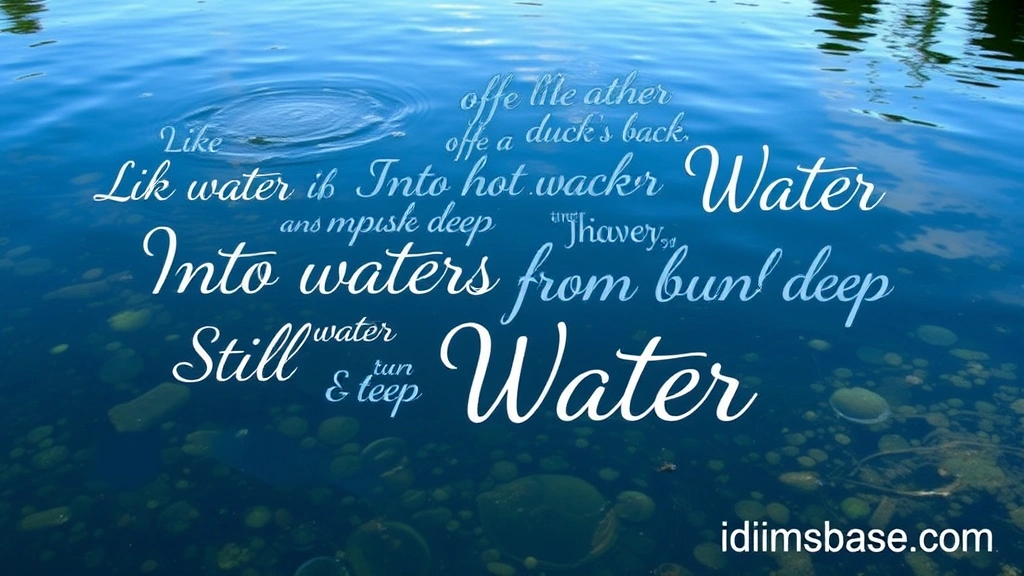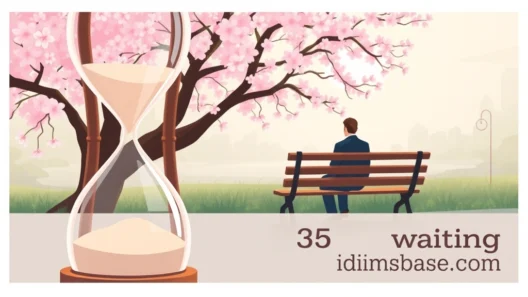Hey there, language lovers and curious minds! Have you ever noticed how often we use water-related phrases in our everyday conversations without even thinking about it? It’s truly fascinating! From the gentle flow of a stream to the powerful rush of a waterfall, water is a fundamental part of our lives, and it has seeped deep into the fabric of our language.
Idioms, those quirky phrases where the meaning isn't obvious from the individual words, are like little linguistic treasures. And when it comes to water, we have a whole ocean of them! They add so much color and depth to our communication, helping us express complex ideas in a simple, relatable way. Understanding these idioms can really help you sound more like a native speaker and truly connect with others. So, are you ready to dive into the wonderful world of water idioms? Let's make a splash and explore 35 of them together!
35 Water Idioms You'll Love to Use!
Get ready to soak up some knowledge! We've gathered a fantastic collection of water idioms that you can start using today. They cover a wide range of situations, from describing emotions to talking about life's challenges and opportunities.
Idioms About Emotions and Feelings
Water often reflects our inner states, doesn't it? These idioms perfectly capture various emotions.
- 1. To be in hot water: This means you're in trouble or a difficult situation.
- Example: "After forgetting his anniversary, John was really in hot water with his wife."
- 2. To be like water off a duck's back: This describes something that has no effect on someone. They just shrug it off!
- Example: "Criticism is like water off a duck's back for a seasoned performer; they don't let it bother them."
- 3. To tread water: This idiom means to stay in one place without making progress, often while waiting for something.
- Example: "The company is just treading water until the new product launches next quarter."
- 4. To be watery-eyed: When someone is watery-eyed, their eyes are filled with tears, often from sadness or emotion.
- Example: "She became watery-eyed as she recounted the touching story of the rescue."
- 5. To be dead in the water: This refers to a plan or project that has failed completely and has no chance of succeeding.
- Example: "Without proper funding, the new initiative was dead in the water."
Idioms About Challenges and Difficulties
Life isn't always smooth sailing, and these idioms perfectly illustrate those challenging times.
- 6. To pour oil on troubled waters: This means to calm a tense or difficult situation.
- Example: "The manager tried to pour oil on troubled waters during the heated team meeting."
- 7. To come hell or high water: This phrase means despite any difficulties or obstacles.
- Example: "I'll finish this project by Friday, come hell or high water!"
- 8. To be out of one's depth: If you're out of your depth, you're involved in a situation that is too difficult for you to handle.
- Example: "He felt completely out of his depth trying to manage the complex IT system."
- 9. To be up the creek without a paddle: This colorful idiom means you're in a difficult situation with no apparent solution or way out.
- Example: "If we lose this client, we'll be up the creek without a paddle."
- 10. To keep one's head above water: This means to manage to survive, especially financially, during a difficult period.
- Example: "With rising expenses, it's hard for many families to keep their heads above water."
- 11. To test the waters: This implies trying something out cautiously before committing fully.
- Example: "Before investing heavily, they decided to test the waters with a small pilot program."
- 12. To be water under the bridge: This refers to past events or problems that are no longer important or relevant.
- Example: "Our old arguments are water under the bridge now; let's move forward."
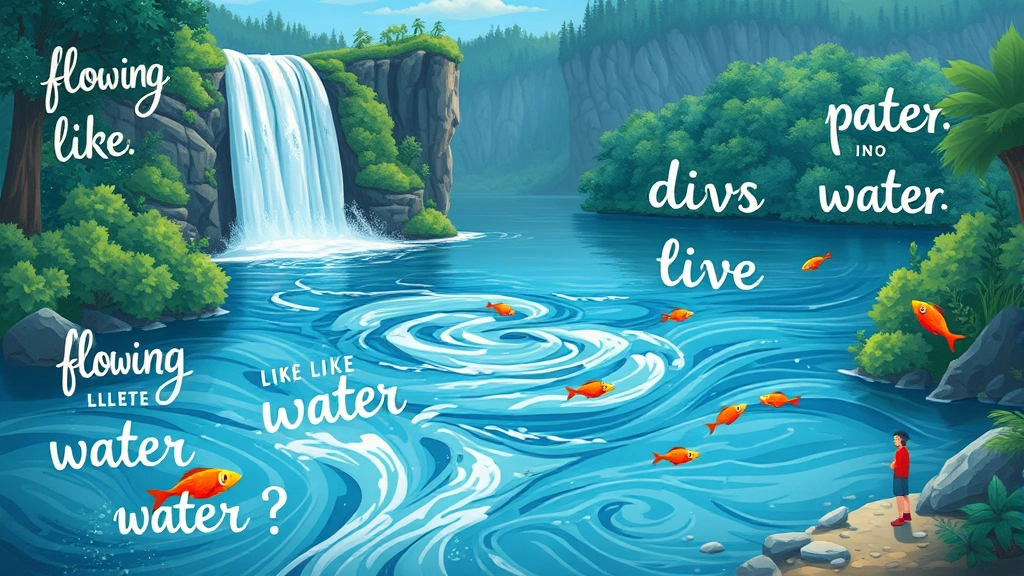
Idioms About Opportunities and Progress
Sometimes, water symbolizes new beginnings or smooth movement.
- 13. To make waves: This means to cause a significant disturbance or to create excitement and attention.
- Example: "The new startup is really making waves in the tech industry."
- 14. To go with the flow: This means to adapt to circumstances and accept things as they happen, rather than trying to control them.
- Example: "Sometimes, it's easier to just go with the flow instead of fighting against every little thing."
- 15. To take to something like a duck to water: This idiom means to quickly and naturally adapt to a new situation or activity.
- Example: "She took to her new role as team leader like a duck to water."
- 16. To be a drop in the ocean/bucket: This means a very small or insignificant amount compared to what is needed or expected.
- Example: "Our small donation felt like a drop in the ocean compared to the immense needs of the disaster victims."
- 17. To smooth the waters: Similar to "pour oil on troubled waters," this means to make things calmer and more agreeable.
- Example: "A sincere apology can often smooth the waters after a disagreement."
Idioms About Truth and Clarity
Water can be clear or murky, just like truth!
- 18. To muddy the waters: This means to make a situation or issue more confusing or difficult to understand.
- Example: "His contradictory statements only served to muddy the waters further."
- 19. To be as clear as mud: This is a sarcastic way to say something is very unclear and confusing.
- Example: "The instructions for assembling the furniture were as clear as mud."
- 20. To hold water: If an argument or statement holds water, it means it is logical, sound, and stands up to scrutiny.
- Example: "The prosecution's case didn't hold water; there were too many inconsistencies."
- 21. To fish in troubled waters: This means to try to gain an advantage from a difficult or chaotic situation.
- Example: "Some politicians always try to fish in troubled waters during times of crisis."
Idioms About Abundance and Scarcity
Water is essential for life, and its presence or absence often signifies plenty or lack.
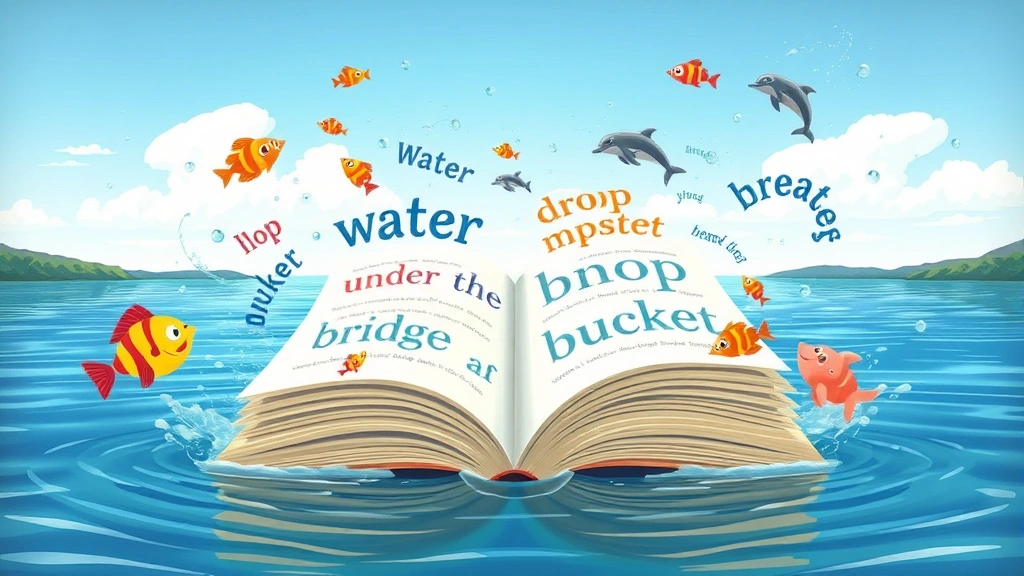
- 22. To have one's head in the clouds and one's feet in the water: An interesting, less common idiom meaning to be idealistic but also grounded in reality.
- Example: "She's an artist with her head in the clouds but her feet in the water, always dreaming big but also practical."
- 23. To be thirsting for knowledge: This means to have a strong desire to learn.
- Example: "The students were thirsting for knowledge after the inspiring lecture."
- 24. To be a big fish in a small pond: This refers to someone who is important and influential within a limited area or group, but not necessarily on a larger scale.
- Example: "He was a big fish in a small pond at his old company, but now he's just one of many at the new, larger firm."
- 25. To drink like a fish: This means to drink a lot of alcohol.
- Example: "At the party, he was drinking like a fish, downing several beers in an hour."
- 26. To throw money down the drain: This means to waste money on something useless or ineffective.
- Example: "Buying that old, broken-down car would just be throwing money down the drain."
Miscellaneous Water Idioms
Here are some more intriguing water idioms that don't quite fit into the other categories but are equally useful!
- 27. To pour cold water on something: This means to discourage or dampen enthusiasm for an idea or plan.
- Example: "His pessimistic comments poured cold water on our exciting new proposal."
- 28. To carry water for someone: This means to support someone, often by doing their bidding or defending them.
- Example: "The assistant always carried water for his boss, no matter how unpopular the decisions were."
- 29. To make one's mouth water: This means to make someone hungry or eager to eat something.
- Example: "The smell of freshly baked bread always makes my mouth water."
- 30. To blow out of the water: This means to completely defeat or destroy something, often an argument or a plan.
- Example: "The new evidence blew the defense's argument out of the water."
- 31. To be like looking for a needle in a haystack (or a drop in the ocean): While not exclusively water-related, the idea of vastness and difficulty of finding something small is similar.
- Example: "Finding that specific document in the unorganized archives was like looking for a needle in a haystack."
- 32. To cut no ice (with someone): This means to have no effect or influence on someone.
- Example: "His excuses cut no ice with the strict teacher."
- 33. To be in deep water: This is another way to say "in trouble" or "in a difficult situation."
- Example: "After missing so many deadlines, he realized he was in deep water with his boss."
- 34. To be a whale of a time: This means to have an extremely enjoyable time (often used in American English).
- Example: "We had a whale of a time at the amusement park!"
- 35. To be all wet: This means to be completely wrong or mistaken.
- Example: "If you think that's the solution, you're all wet!"
FAQs About Water Idioms
You've got questions? We've got answers! Let's dive deeper into some common queries about idioms.
What is an idiom?
An idiom is a group of words established by usage as having a meaning not deducible from those of the individual words. Think of it like a secret code – you can't just guess the meaning by knowing each word separately. "It's raining cats and dogs" doesn't mean animals are falling from the sky, does it? It means it's raining very heavily!
Why are idioms important in English?
Idioms are super important for several reasons!
- They make your language more colorful: Instead of just saying "I'm in trouble," saying "I'm in hot water" adds a vivid image.
- They show fluency: Using idioms naturally shows that you have a deeper understanding of the language and its cultural nuances.
- They are common: Native speakers use idioms all the time, so understanding them helps you follow conversations and media better.
- They are fun! Learning and using idioms can be a really enjoyable part of your language journey.
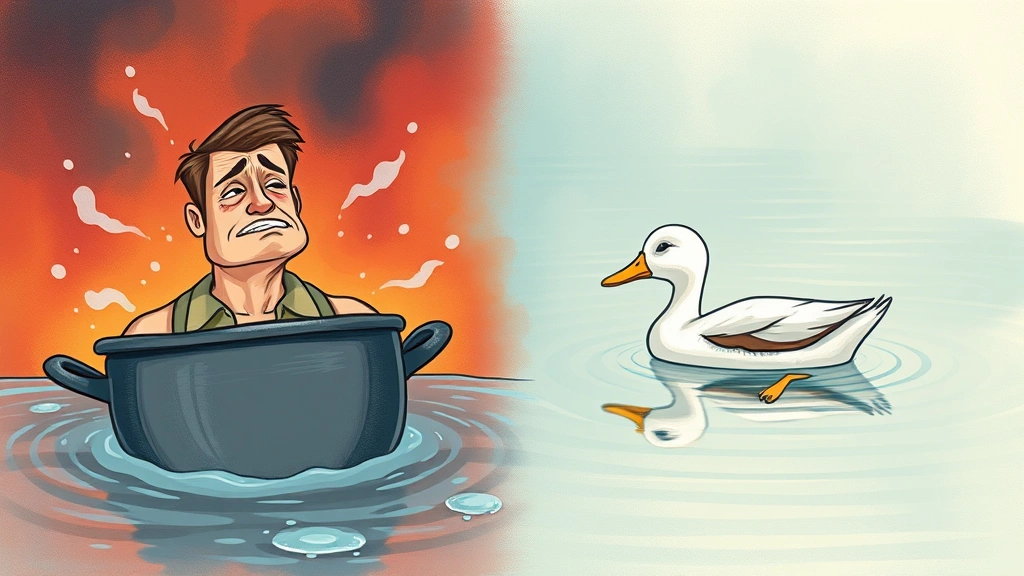
How can I learn and remember new idioms?
Great question! Learning idioms can be tricky, but here are some tips:
- Context is key: Always try to learn idioms in a sentence or situation. This helps you understand how they're used.
- Visualize them: Some idioms, like "to be up the creek without a paddle," create funny mental images. Use that to your advantage!
- Practice, practice, practice: Try to use new idioms in your own conversations or writing. The more you use them, the more natural they'll feel.
- Group them: Like we did here, grouping idioms by theme (emotions, challenges, etc.) can make them easier to remember.
- Flashcards: Write the idiom on one side and its meaning (and an example sentence) on the other.
- Read widely: The more you read books, articles, and watch movies/TV shows in English, the more you'll encounter idioms in their natural habitat.
Are water idioms used globally?
Yes, absolutely! While some idioms might be more common in certain regions (like American English vs. British English), many of the water idioms we've discussed are widely understood and used across the globe wherever English is spoken. They are part of the common linguistic currency of the English language, making them excellent tools for global communication.
Can idioms sometimes have multiple meanings?
Yes, sometimes! While most idioms have a primary meaning, a few might have slightly different interpretations depending on the context. However, for the most part, the idioms listed here have clear and established meanings. Always pay attention to the surrounding words to confirm the intended meaning.
Key Takeaways
Wow, we've covered a lot of ground, haven't we? Let's quickly recap the main splashes of knowledge we've made:
- Water idioms are everywhere: They are a fundamental part of the English language, reflecting our deep connection to this essential element.
- They add flavor to your language: Using idioms makes your speech and writing more vivid, expressive, and engaging.
- Understanding them boosts fluency: Knowing idioms helps you comprehend native speakers and integrate more seamlessly into English conversations.
- Practice makes perfect: Like any skill, mastering idioms requires consistent effort, context-based learning, and regular use.
- Context is king: Always consider the situation and surrounding words to fully grasp an idiom's meaning.
So, the next time you're talking about a tough situation, a calm discussion, or a new opportunity, try to sprinkle in one of these fantastic water idioms. You'll not only sound more natural, but you'll also impress your listeners with your linguistic prowess!
Ready to Make a Splash?
We hope you had a fantastic time diving into these 35 water idioms! Language learning is an incredible journey, and understanding these unique phrases is like discovering hidden gems. Which water idiom is your favorite? Do you have another one that we missed and absolutely love? We'd be thrilled to hear from you! Share your thoughts and experiences in the comments below. Let's keep the conversation flowing!



